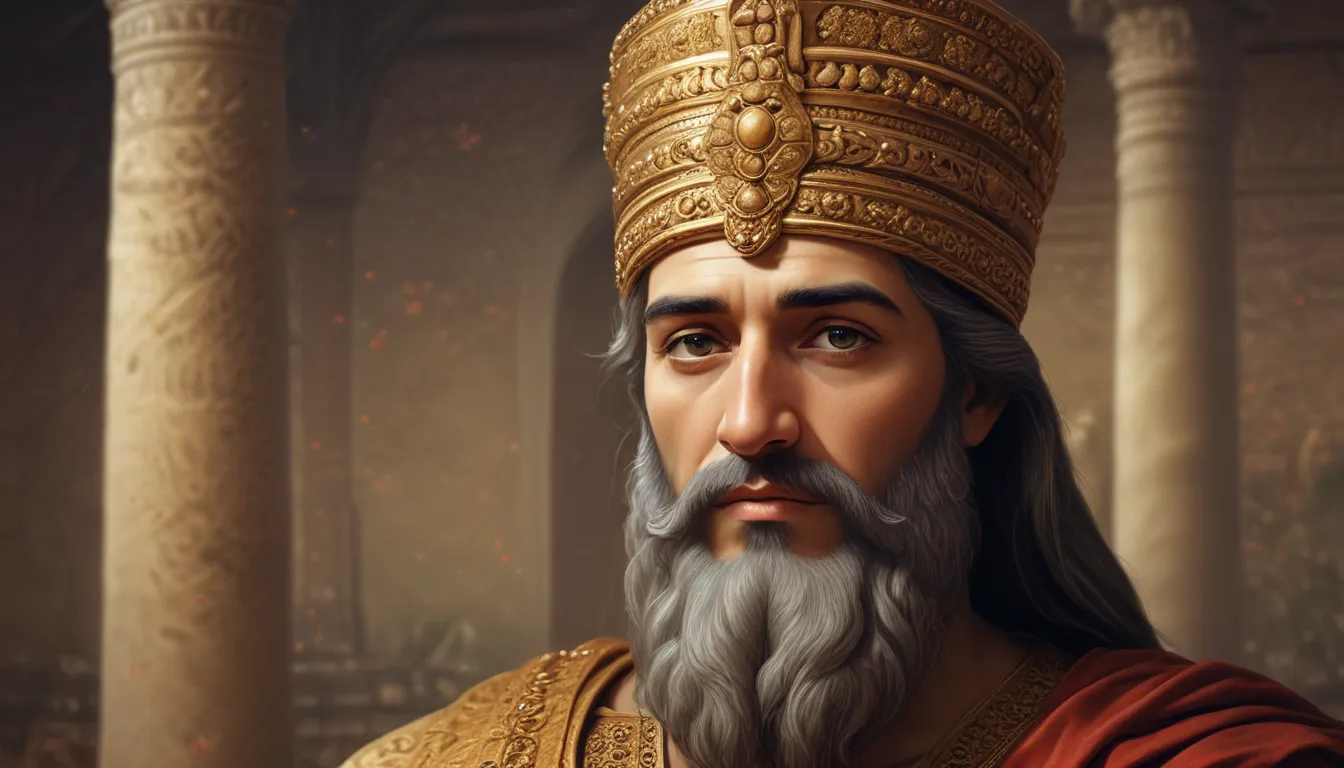The images in our articles may not match the content exactly. They are used to grab your attention, not to show the exact details in the text. The images complement the text but do not replace it.
Cyrus the Great, the illustrious founder of the Achaemenid Empire, stands tall as one of the most influential rulers in ancient history. His exceptional leadership skills, military acumen, and progressive policies have left an indelible mark on civilization, inspiring awe and admiration even to this day. Join us on a journey to uncover the extraordinary life and accomplishments of this legendary figure as we delve into 10 astounding facts that shed light on his legacy.
Champion of Cultural Diversity and Human Rights
Cyrus the Great, also known as Cyrus II, carved a legacy as a champion of cultural diversity and human rights. His policy of tolerance towards conquered peoples, allowing them to retain their customs, languages, and religions, earned him the title of “The Great Lawgiver.” This inclusive approach set the stage for harmonious coexistence within his vast empire.
The Iconic Cylinder of Cyrus
A significant artifact from Cyrus the Great’s era, the Cylinder of Cyrus, is a testament to his benevolence and respect for diverse faiths. This ancient clay cylinder contains his decree permitting the exiled Jewish community to return to their homeland and rebuild their temple in Jerusalem, highlighting his pivotal role in religious history.
Military Mastery: Conquest of Babylon
In 539 BCE, Cyrus achieved a momentous victory by conquering the great city of Babylon, establishing his reign over a vast empire. This pivotal conquest showcased his military brilliance and strategic prowess, reshaping the course of ancient history and solidifying his reputation as a formidable ruler.
Progressive Policies on Human Rights
Renowned for his progressive policies on human rights, Cyrus the Great introduced what is believed to be the first known declaration of human rights. This groundbreaking decree granted freedom of religion, abolished slavery, and promoted justice and equality within his empire, setting a precedent for enlightened governance.
Visionary Administrative System: Satrapies
Cyrus implemented a revolutionary administrative system by dividing his empire into satrapies or provinces, each governed by a local satrap. This decentralized structure facilitated efficient governance, promoting stability and prosperity throughout the empire while fostering a sense of local autonomy.
Revered by Greek Historians
Greek historians such as Xenophon and Herodotus held Cyrus the Great in high esteem, acknowledging his leadership, wisdom, and military achievements. His empire’s influence on Greek culture and art paved the way for a Hellenistic influence in the region, further solidifying his place in history.
Military Innovations and Strategic Acumen
Cyrus the Great’s military innovations and strategic acumen set him apart as a visionary leader. He introduced the concept of a well-disciplined standing army, equipped with advanced tactics, contributing to his success in conquering and maintaining control over vast territories, cementing his reputation as a military genius.
Architectural Marvels: Urban Planning and Infrastructure
Cyrus’s commitment to urban planning and infrastructure development is evident in the magnificent cities he built, such as Persepolis. These grandiose cities, adorned with palaces, temples, and gardens, exemplified his dedication to architectural excellence and commitment to enhancing the quality of life within his empire.
Enduring Legacy and Global Influence
Cyrus the Great’s legacy reverberates through the annals of history, shaping the governance of future leaders and empires. His ideals of cultural diversity, religious freedom, and human rights continue to resonate, inspiring admiration and emulation across diverse cultures and civilizations.
In conclusion, Cyrus the Great’s extraordinary life and achievements stand as a testament to his enduring legacy as a visionary leader, military strategist, and advocate for human rights. His exemplary governance, inclusive policies, and architectural marvels continue to captivate and inspire generations, underscoring his status as one of the greatest leaders in human history.
FAQs: Unraveling the Mysteries of Cyrus the Great
-
Who was Cyrus the Great?
Cyrus the Great was the illustrious founder of the Achaemenid Empire, ruling from 559 to 530 BCE. Renowned for his military victories, administrative prowess, and progressive policies promoting religious tolerance and human rights. -
How did Cyrus the Great build his empire?
Cyrus the Great expanded his empire through strategic military conquests, forging alliances and integrating powerful empires under his rule through astute leadership and decisive campaigns. -
What was Cyrus the Great’s approach towards conquered peoples?
Cyrus the Great embraced a benevolent policy towards conquered peoples, allowing them to maintain their customs, religions, and languages, fostering a sense of unity and diversity within his empire. -
What is Cyrus the Great’s enduring legacy?
Cyrus the Great’s legacy is defined by his progressive policies and emphasis on human rights, exemplified by the Cylinder of Cyrus, the world’s first known declaration of human rights, symbolizing justice, freedom, and equality. -
How did Cyrus the Great promote religious tolerance?
Cyrus the Great championed religious tolerance by permitting his subjects to freely practice their faiths and actively supporting the restoration of religious sites and practices, fostering an environment of inclusivity and respect. -
Are there monuments dedicated to Cyrus the Great?
Indeed, Cyrus the Great is commemorated through several monuments, most notably his tomb in Pasargadae, Iran, serving as a revered pilgrimage site and a testament to his enduring greatness and influence. -
Was Cyrus the Great successful in his military campaigns?
Cyrus the Great achieved remarkable success in his military campaigns, triumphing over formidable empires such as the Lydians, Babylonians, and Medes, establishing one of history’s largest empires. -
How did Cyrus the Great meet his end?
While the exact circumstances of his death remain shrouded in mystery, it is believed that Cyrus the Great perished in battle against the Massagetae, a Central Asian nomadic tribe, marking the end of an iconic era. -
How is Cyrus the Great remembered today?
Cyrus the Great is revered as a just and benevolent ruler, embodying principles of tolerance and justice that continue to inspire leaders and scholars worldwide, leaving an enduring legacy of enlightened governance and human rights advocacy. -
What impact did Cyrus the Great have on future civilizations?
Cyrus the Great’s profound impact reverberates through the ages, influencing the development of future civilizations, notably the Persian Empire and its influence on subsequent empires like the Hellenistic and Roman civilizations, shaping the course of history.
Embark on a captivating journey through the legacy of Cyrus the Great, a pivotal figure in ancient history whose vision, leadership, and enduring contributions continue to fascinate and inspire. Explore the mysteries and marvels of this enigmatic ruler, and witness the lasting impact of his legacy on the world stage. Unravel the enigma of Cyrus the Great, a beacon of enlightenment and progress in the annals of history.






